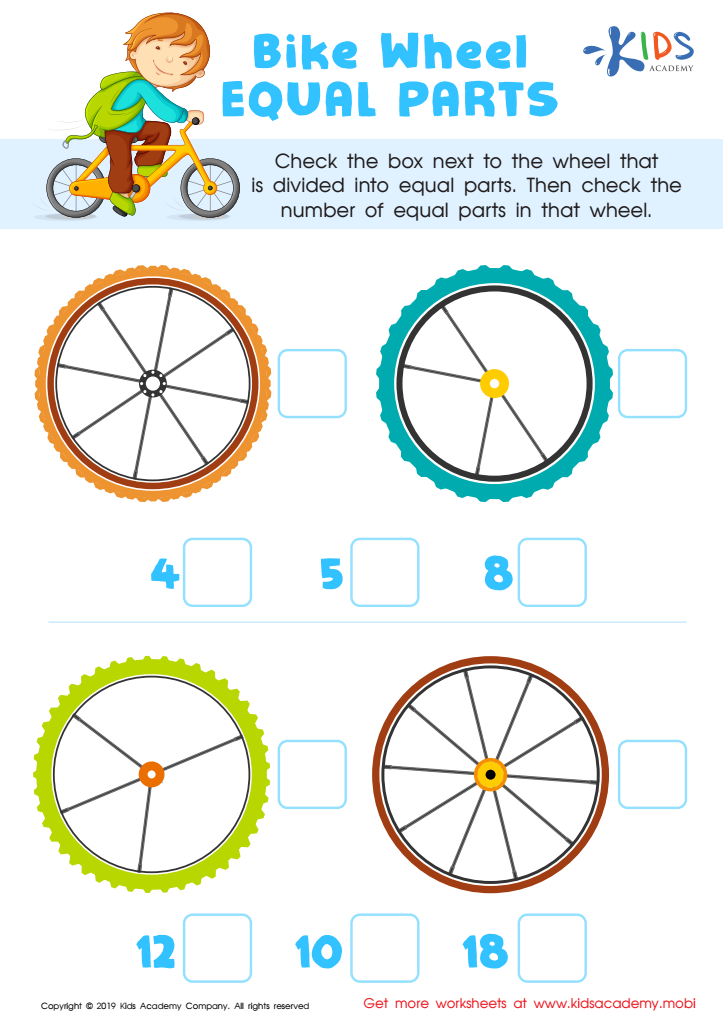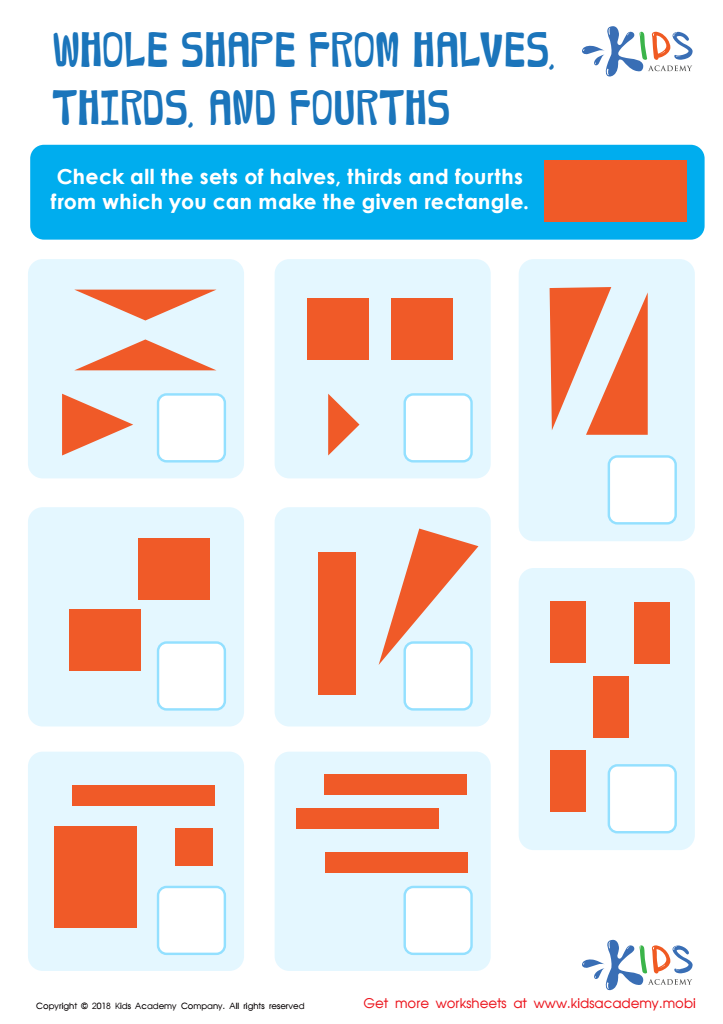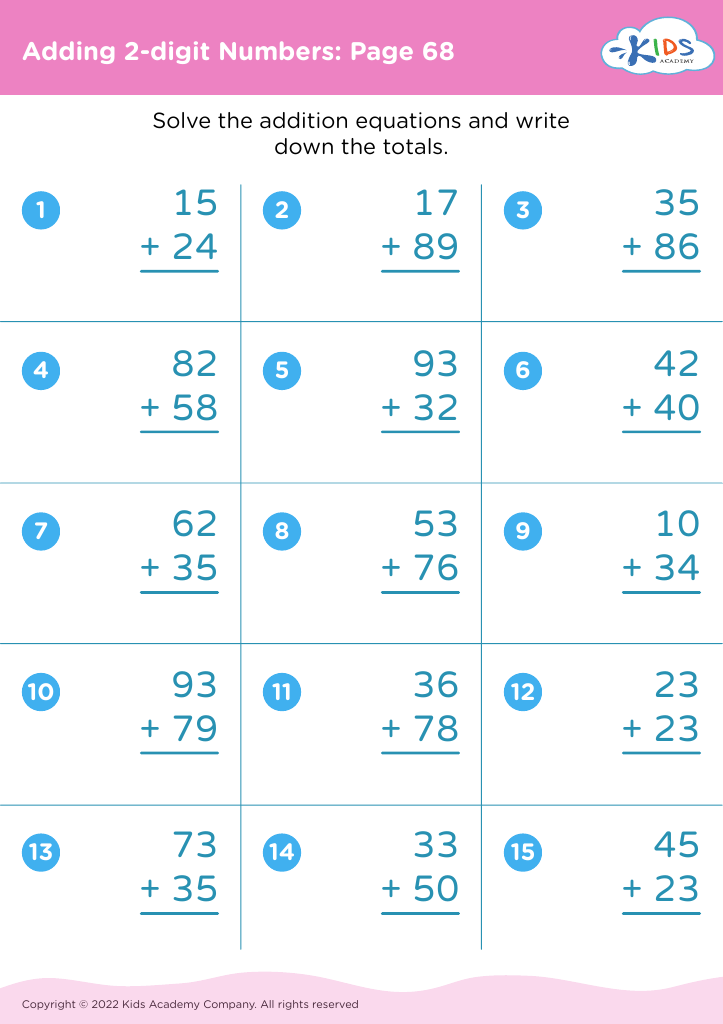Fractions understanding Math Worksheets for Ages 7-9
3 filtered results
-
From - To
Explore our engaging "Fractions Understanding" math worksheets designed for children aged 7-9. These worksheets provide a fun and interactive way for young learners to grasp the concept of fractions, from identifying parts of a whole to comparing and ordering simple fractions. Each activity encourages critical thinking and problem-solving skills, making math enjoyable and accessible. Crafted to align with educational standards, these resources not only promote mathematical understanding but also build confidence in young learners. Suitable for both classroom and home use, our worksheets are perfect for individualized practice or homework assignments. Start your child's fraction journey today!


Bike Wheel Equal Parts Worksheet


Whole Shape from Halves, Thirds and Fourths Worksheet
Understanding fractions is crucial for children aged 7-9 as it establishes a foundation for their future mathematical skills. At this age, children's cognitive abilities are developing, allowing them to grasp concepts that involve partitioning whole objects and understanding parts of a whole. A strong grasp of fractions helps students make sense of division, addition, and subtraction, which are integral to more advanced math topics like ratios, decimals, and percentages in later grades.
Moreover, fractions are present in real-life situations, from cooking and sharing food to measuring materials for crafts or projects. By mastering fractions, children develop critical thinking and problem-solving skills that translate beyond math. They learn to compare, order, and understand equal parts, fostering a comprehensive understanding of quantity and value.
For parents and teachers, prioritizing fraction education promotes a positive attitude towards math and builds confidence in young learners. Engaging them through fun, interactive activities can make the learning process enjoyable, ensuring that children see math as approachable rather than intimidating. Ultimately, a solid foundation in fractions empowers children to navigate complex math concepts with ease in their educational journey and everyday lives.

 Assign to My Students
Assign to My Students















